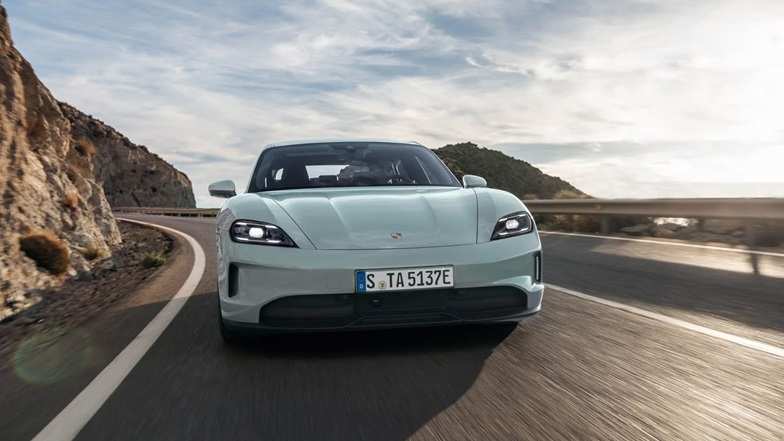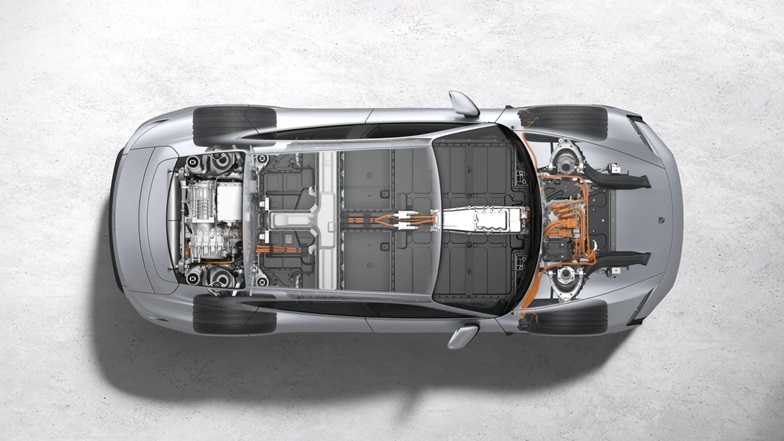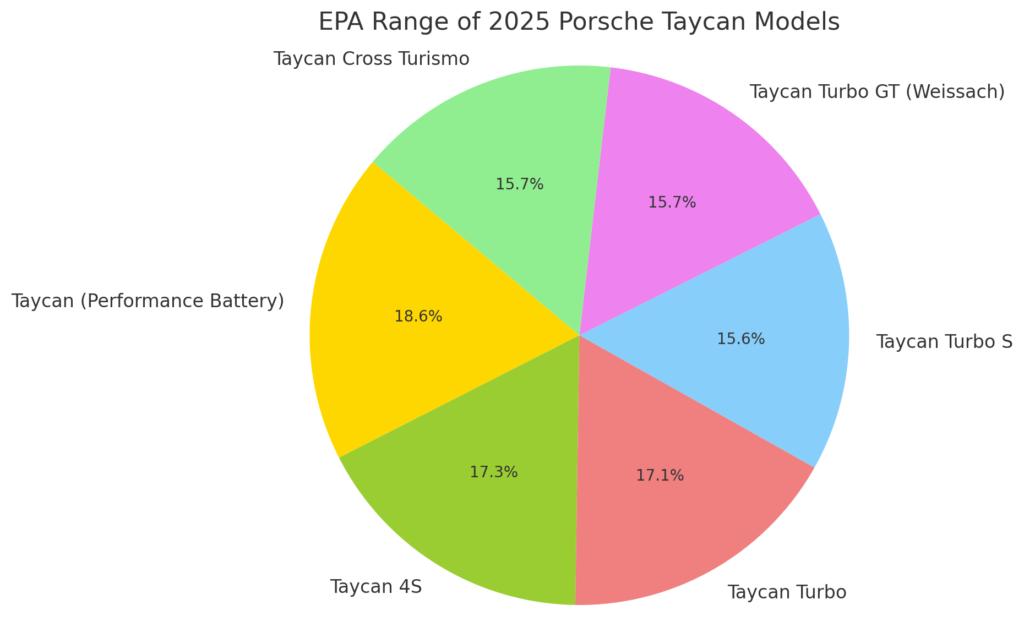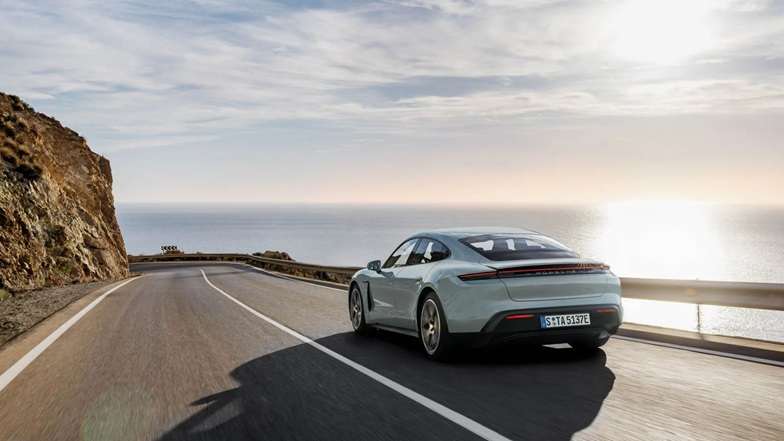The 2025 Porsche Taycan significantly improves range and efficiency, making it a strong competitor in the electric vehicle market.
The 2025 Porsche Taycan is regulated to redefine electric vehicle (EV) performance with significant improvements in range and efficiency. Here’s a detailed breakdown of the latest enhancements and what they mean for potential buyers.

Key Points
- Range Improvements: Up to 318 miles EPA-rated range
- Battery Upgrades: Performance Battery Plus with increased capacity
- Enhanced Efficiency: Optimized drivetrain, brake regen, and aerodynamics
- Fast Charging: 10-80% charge in just 18 minutes
Comparison Table: 2024 vs. 2025 Porsche Taycan
| Feature | 2024 Taycan | 2025 Taycan |
|---|---|---|
| Maximum EPA Range | 246 miles | 318 miles |
| Performance Battery Plus | 93.4 kWh gross / 83.4 kWh usable | 105 kWh gross / 97 kWh usable |
| Standard Battery | 83.6 kWh usable | 83.6 kWh usable |
| Charging Time (10-80%) | Not specified | 18 minutes |
| Thermal Management | Updated motor behavior | 800-volt climate compressor, heat pump |
| Range with Standard Battery | Up to 246 miles | Up to 274 miles |
Important Points
- Enhanced Range: The 2025 Taycan offers nearly 30% more range than the 2024 model.
- Efficiency Gains: Porsche has significantly improved drivetrain efficiency, brake regeneration, and overall aerodynamics.
- Thermal Management: Upgraded with a high-power climate compressor and heat pump used 100% of the time for interior heating.
- Charging Efficiency: Impressive 10-80% charge time of just 18 minutes, utilizing 350 kW CCS connectors.
Efficiency Enhancements:
- Improved drivetrain efficiency
- Enhanced brake regeneration and recuperation
- Optimized aerodynamics and rolling resistance
- Upgraded thermal management system with an 800-volt climate compressor and heat pump

Detailed Comparison: Taycan Models
| Model | 2025 EPA Range (miles) | Notes |
|---|---|---|
| Taycan (Performance Battery) | Up to 318 | Larger battery pack, highest range |
| Taycan 4S | 295 | Slightly lower due to propulsion system |
| Taycan Turbo | 292 | High-power system, aggressive wheels/tires |
| Taycan Turbo S | 266 | Lowest in lineup with larger pack |
| Taycan Turbo GT (Weissach) | 269 | Edgy design, moderate range |
| Taycan Cross Turismo | 261-277 | Different roofline, still impressive range |

Here’s a pie chart illustrating the EPA ranges of the different 2025 Porsche Taycan models. This visual representation helps to compare the range capabilities of each model easily.
- Taycan (Performance Battery): 318 miles
- Taycan 4S: 295 miles
- Taycan Turbo: 292 miles
- Taycan Turbo S: 266 miles
- Taycan Turbo GT (Weissach): 269 miles
- Taycan Cross Turismo: 269 miles
Efficiency and Range Enhancements
1- Battery Capacity Increase:
- From 93.4 kWh (gross) to 105 kWh (gross) – approximately a 15% increase.
- Usable capacity from 83.4 kWh to 97 kWh.
2- Engineering Improvements:
- Drivetrain efficiency enhancements.
- Optimized brake regeneration and recuperation.
- Improved aerodynamics and rolling resistance.
3-Thermal Management:
- New 800-volt climate compressor.
- Heat pumps are shucked 100% of the time for interior heating.
Fast Charging and Road Trip Viability
The 2025 Taycan boasts a quick charging time, making it a strong competitor against top EVs like the Lucid Air and Tesla Model S.
- Charge Time: 10-80% in just 18 minutes.
- Range Gain: 223 miles with a 70% charge.

The 2025 Porsche Taycan delivers on its promise to enhance range and efficiency. With its improved battery capacity, advanced thermal management, and rapid charging capabilities, the Taycan engagement exceeds the standards set by leading EV competitors. That makes it an attractive option for those looking for performance, efficiency, and the ability to go further on a single charge.
The 2025 Porsche Taycan stands out with its enhanced range, efficiency, and faster charging capabilities. These advancements position it as a strong competitor to the Lucid Air and Tesla Model S, making it an excellent choice for those seeking performance and efficiency in an electric vehicle.
Related Post
